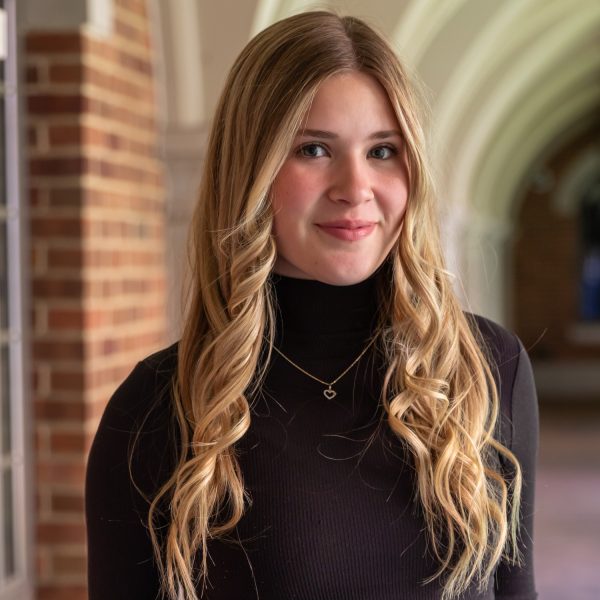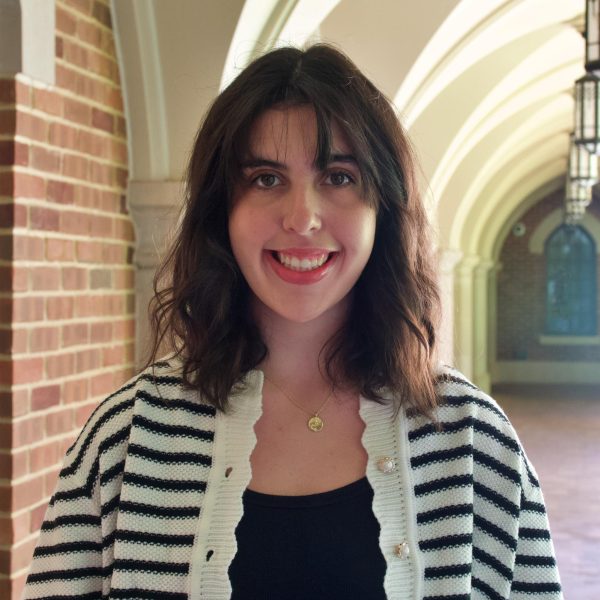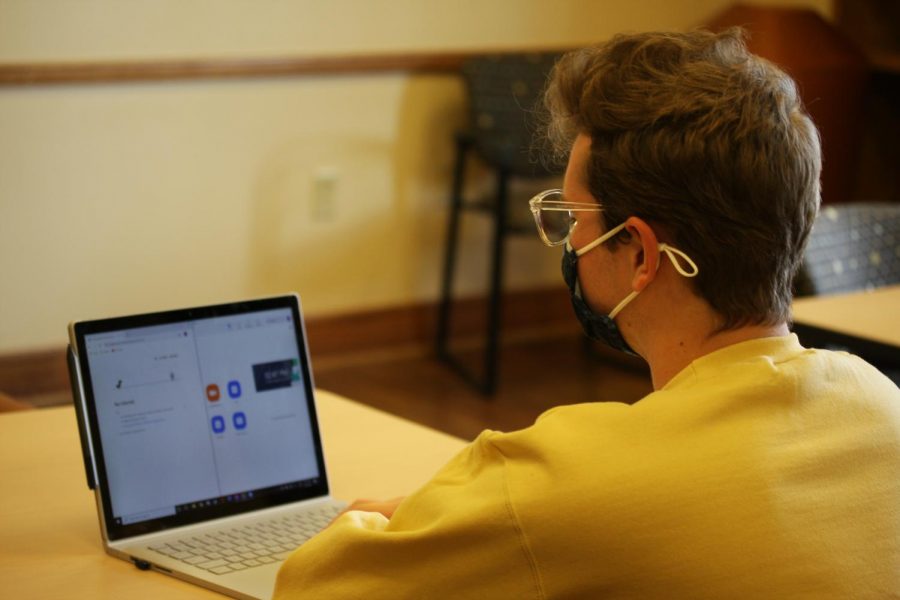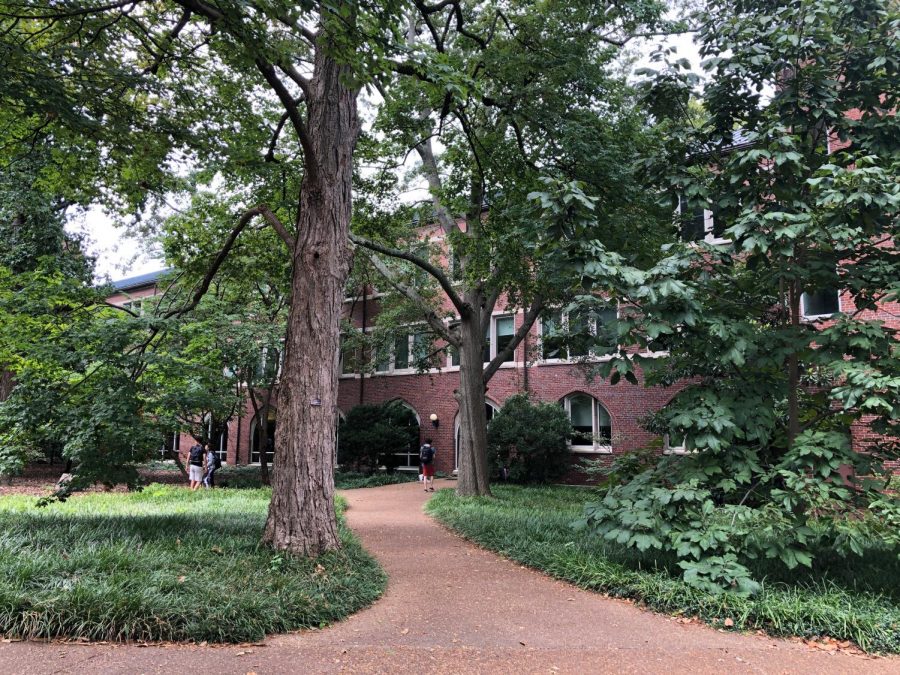According to emails sent out to students, Vanderbilt will transition the undergraduate email service from Google to Microsoft this summer. Vanderbilt University Information Technology claims that the switch will integrate undergraduate digital communications with graduate students and faculty members, both of whom already use Microsoft 365. The Hustler’s Opinion staff has weighed in on the potential gains and losses this switch will cause.
How do you feel about the transition from Google to Microsoft for undergraduate students?
George Albu, Deputy Opinion Editor: In all honesty, this change will likely be forgotten in one or two years. Both Google and Microsoft work for students, and I think the biggest factor in this entire transition is adjusting to the Microsoft Suite. I have been using Google Suite since third grade, so the new platform will be an adjustment. I am optimistic that perhaps Microsoft’s services will suffice — or go beyond — for my personal needs.
Frederik Schutz, Staffer-In-Training: I’m not ardently opposed, but I am not indifferent either. The switch probably won’t force me to fundamentally rethink my day-to-day, but there is some cause for concern. There hasn’t been much communication about what this change entails, including how my files, emails, logins and other Gmail-connected items are going to be affected. Google Drive collaboration is so much more seamless and clean than in the 365 Suite, so it may take some time to get used to. Outside of that, did anyone ask for this? I am fine with the status quo.
Michael Carroll, Staff Writer: Truthfully, I feel pretty torn about the move from Google to Microsoft. As much as I am a Google Docs and Google Calendar fan, I have always felt a bit of pressure to move over to the Microsoft “dark side.” I have been told by many “adults” — specifically those in the professional world — that Microsoft is the end-all be-all, so I feel excited about taking this step towards maturity. However, saying goodbye to the platform I have used since my first interaction with a computer will be difficult. There is something to be said about the ease of use and collaboration with Google that makes me worried that Microsoft won’t be able to keep up.
Vanderbilt University’s IT Department claims that the switch will allow undergraduate students, graduate students and staff to be more unified and simplify communication between the groups. Do you think Microsoft offers better or worse functionality for students?
Claire Andrews, Staff Writer and Photographer: I use Microsoft products for my internship, and I generally find that other communication methods are necessary outside of Teams, Outlook, etc. to communicate effectively with clients and coworkers. I also find that my office’s SharePoint Drive — similar to Google Drive — is very difficult to navigate regularly. Generally, I find Google to be more user-friendly for communication and storage, and I believe this remains true for Vanderbilt communications as well. I think there will also be a period where faculty, staff and students will have miscommunications while adapting to the new platform. Because of the learning curve students and faculty will have to climb — alongside the unorganized nature of Microsoft products — I believe that Microsoft offers worse functionality for students.
Evan Nava, Opinion Desk Coordinator: I dislike Microsoft, so I am not looking forward to using their products instead of Google Workspace. I like having everything in my browser, and while Word exists for the browser, Google Docs is a lot smoother. Additionally, Gmail seems superior to Outlook. I don’t know many of the specifics, but the interface of Gmail alone makes me like it more than Outlook. Overall, I think the functionality of Microsoft Office will be worse than Google Workspace, which will cause a temporary loss of productivity as students learn to manage the new software.
Kate Connell, Opinion Editor: As someone who works with faculty at Vanderbilt and VUMC, I can understand the motivation behind the switch to Microsoft. However, I don’t believe that Microsoft actually offers better functionality for the typical day-to-day student experiences. From unsuccessfully moving files in OneDrive to attempting to share a Word document with a classmate, I’m certain that we will see a host of communication and collaboration issues once the switch has taken effect.
How might this transition positively or negatively impact your academic workflow?
Victoria Ayeni, Staffer-in-training: My K-12 school district gave us Office 365 accounts starting from my seventh-grade year, so, out of instinct, I’ve naturally defaulted to using Office to create and manage all of my assignments. That being said, it’s definitely going to be inconvenient for group assignments. In the past, it’s sometimes been difficult to share documents via Word or Excel, whereas Google Docs has remained much more reliable and less frustrating to deal with in terms of collaboration.
Andrews: As with any software or computer program, users need time to climb the learning curve as they explore methods of communication and organization that work for them. However, for students new to Microsoft products, this could create challenges next fall as they navigate through course loads expecting them to use Office 365. This would require students, especially upperclassmen, to change their organization systems that they’ve crafted over their years at Vanderbilt. While this change does not highly impact rising first-years, it does create the possibility of difficulties for those who have already used Google programs as part of their academic workflow.
Albu: I believe that — at least for the next year — the transition will negatively impact my academic workflow. The issue is less about what Microsoft Outlook can do and more about the time it takes to adjust to figuring out how to master the controls of each new application (i.e. going from Docs to Word, Sheets to Excel, etc.).This might result in lost productivity in our day-to-day workflows and wasted in-lecture time for professors to give technical assistance to students to complete assignments.
Do you believe that undergraduate students should have been consulted before VUIT decided to make the switch?
Nava: Yes. The primary reason for this switch was to allow connectivity between the separate groups of students and faculty on campus. While it was probably easier to make the undergraduate students switch, I don’t see why they couldn’t have made graduate students and faculty switch to Google Suite. Additionally, consulting the undergraduates would have been a good way to announce the change while still providing students with the illusion of a choice. That way, students feel like they at least had a say in the process, even if the decision was already made. Additionally, I don’t see why we can’t use both platforms. That would give everyone the ability to choose which platform they prefer to work with in any given situation, which would ultimately please everyone.
Carroll: As much as I wish we were consulted, I know that they were going to make the change regardless of student opinion. I think it would have been great to have undergraduate feedback only if they took said feedback into consideration, but the fact is VUIT has other constraints that made them make this decision. I truly believe it has nothing to do with student workflow and everything to do with data management, costs and consistency. So, why would they listen? However, I do think it is reasonable to request resources on how to effectively use Microsoft from VUIT. They switched us over, so it is now their responsibility to make that switch smooth.
Ayeni: I definitely think that they should have, at the very least, sent out a survey to ask students before they made the switch; after all, the students are the ones who have to deal with these changes. For me personally, after two full academic years of routinely using Gmail, it’s going to feel very awkward and inconvenient to make the full-time switch to Microsoft.
Will switching to Microsoft make collaboration with non-Vanderbilt students harder?
Connell: I honestly don’t believe that the switch will significantly impact collaboration with non-Vanderbilt students. While most students will have at least some limited exposure to Microsoft platforms, the option to have a personal Google account for those few collaborations still exists. Additionally, this switch will make collaborations with businesses, medical professionals and other workplace professionals significantly easier, as most businesses utilize Microsoft anyways.
Nava: I think this will make collaboration much harder. Most students default to Google when collaborating, because Google makes it easy to collaborate on documents with a team. I’ve looked up how to share various Microsoft documents before, and while it is possible, it seems less intuitive than Google’s products. With non-Vanderbilt students, I think collaboration could be easier, but it really just depends on who you are working with.
What long-term benefits might the student body gain through transitioning to Microsoft?
Albu: Aside from the increased communication among different groups, the student body also gains experience in the Microsoft Outlook suite. With Outlook being popular in professional settings as a go-to workflow suite, this will be an interesting time to see whether future generations of Vanderbilt students show higher workflow efficiency in five years. I expect by that time, Vanderbilt faculty will already know how to best plan around any technical difficulties, and students perhaps would have had experience working with the Outlook suite in their K-12 education.
Nava: Most workplaces use Microsoft products, so mandating undergraduates to use Microsoft will allow them to learn these products before entering the workplace. Additionally, any problems that arise from transferring documents from Google to Microsoft will hopefully lead to a consistent troubleshoot pipeline, allowing students to find help during the transition.
Connell: Many undergraduate students at Vanderbilt have an interest in graduate or medical studies at Vanderbilt as well. Since these groups already use Microsoft, it only makes sense to give undergraduate students the tools needed to have much-needed experience for future endeavors. While it may seem like a huge adjustment right now, I think most students will grow to appreciate the transition.

















